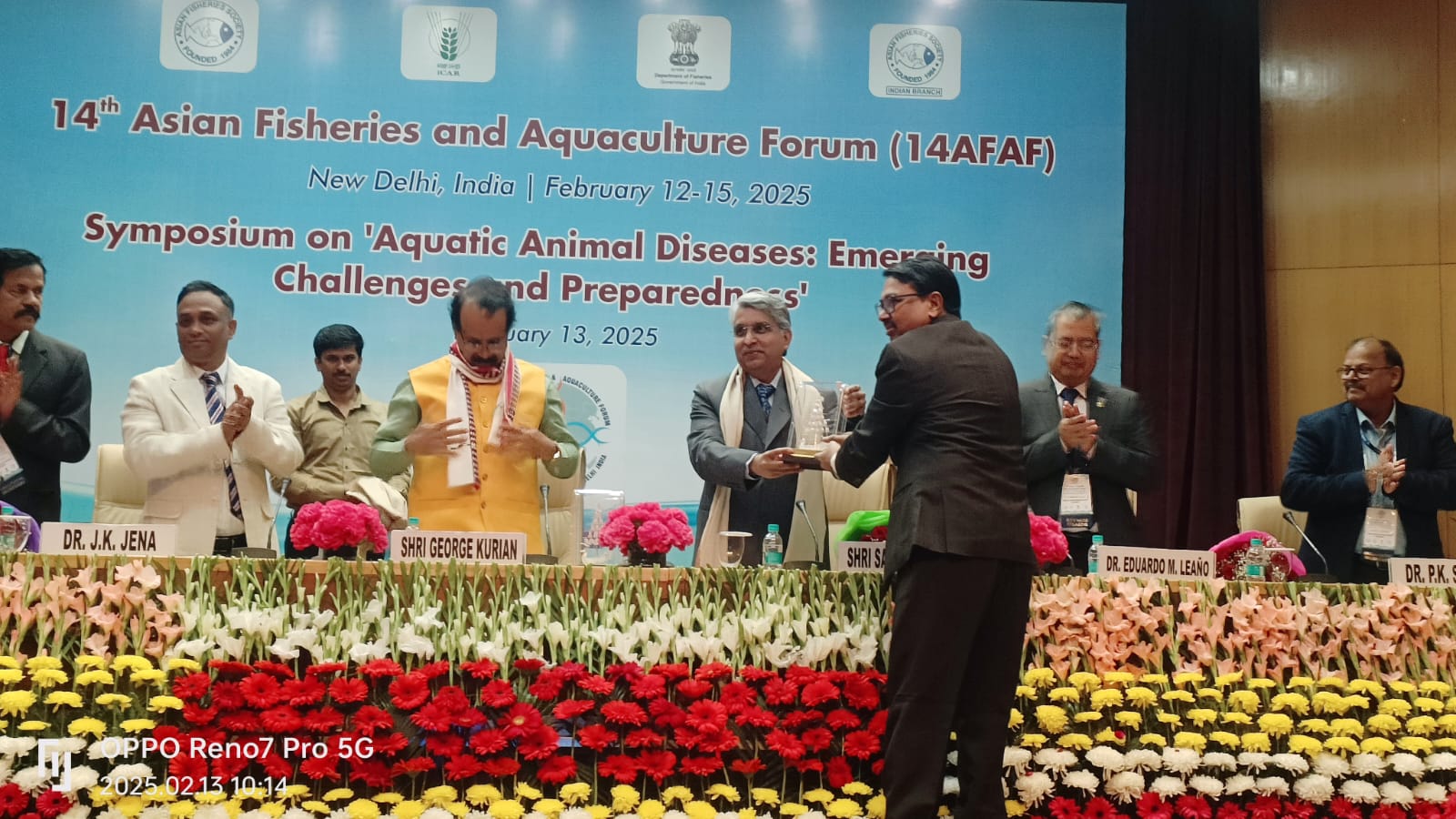14AFAF Focuses on Aquatic Animal Disease Management and Sustainable Aquaculture
The event, organized by the Indian Council of Agricultural Research (ICAR) and partners, runs from February 12 to 15, 2025, under the theme “Greening the Blue Growth in Asia-Pacific.”

- Country:
- India
The 14th Asian Fisheries and Aquaculture Forum (14AFAF) commenced at the ICAR Convention Centre, Pusa Campus, New Delhi, with a dedicated symposium on 'Aquatic Animal Diseases: Emerging Challenges and Preparedness.' The event, organized by the Indian Council of Agricultural Research (ICAR) and partners, runs from February 12 to 15, 2025, under the theme “Greening the Blue Growth in Asia-Pacific.”
The symposium was inaugurated by Union Minister of State for Fisheries, Animal Husbandry, and Dairying, Shri George Kurian. In his keynote address, he lauded ICAR for organizing the event and stressed the importance of sustainable aquaculture practices for food security, livelihoods, and economic growth. He advocated for a 'One Earth - One Family' approach and called for a multi-stakeholder effort to strengthen biosecurity protocols, improve disease surveillance, and enhance diagnostics and therapeutic solutions. He also acknowledged ongoing government initiatives such as Pradhan Mantri Matsya Sampada Yojana (PMMSY) that are boosting India's aquaculture sector.
Dr. J.K. Jena, DDG (Fisheries Science), ICAR, and symposium convener, provided an overview of the event, emphasizing the importance of projects such as the National Surveillance Programme for Aquatic Animal Diseases (NSPAAD) Phase II and the Indian Network on Fishery and Aquaculture Research (INFAR) project. He highlighted the critical role of the Network project on Fish Health for advancing research in aquatic disease management, diagnostics, and vaccine development, particularly in the context of expanding aquaculture systems and species diversification.
Joint Secretary of the Department of Fisheries, Shri Sagar Mehra, stressed the vital role of the fisheries sector in supporting livelihoods and economic growth. He underscored the importance of national and regional strategies for combating disease outbreaks and emphasized the need for stronger biosecurity measures and early detection systems to mitigate risks associated with live animal movement.
Dr. B.K. Behera, Chief Executive, NFDB, called for institutionalizing fish disease surveillance programs across India to facilitate systematic monitoring and early detection of aquatic diseases. He advocated for the creation of disease-free zones and emphasized integrating surveillance into national aquaculture policies with strong regulatory frameworks and sustained funding.
From an international perspective, Dr. Eduardo Leano of the Network of Aquaculture Centres in Asia-Pacific (NACA) highlighted the rising threat of antimicrobial resistance (AMR) in aquaculture. He urged for a globally coordinated approach to aquatic biosecurity, noting NACA's long-standing experience in disease surveillance across 20 countries.
The symposium began with a welcome address by Dr. B.K. Das, Director of ICAR-CIFRI, who reiterated the significance of disease management and the NSPAAD program in promoting aquatic health solutions. The event concluded with a vote of thanks by Dr. P.K. Sahoo, Director of ICAR-CIFA.
The 14AFAF, a triennial event organized by the Asian Fisheries Society (AFS), Kuala Lumpur, is being hosted in India for the second time since the 8AFAF in Kochi (2007). The forum is jointly organized by AFS, ICAR, the Department of Fisheries (Government of India), and the AFS Indian Branch (AFSIB), Mangalore. The event brings together experts, policymakers, and industry stakeholders to address emerging challenges and advance sustainable aquaculture practices in the Asia-Pacific region.










